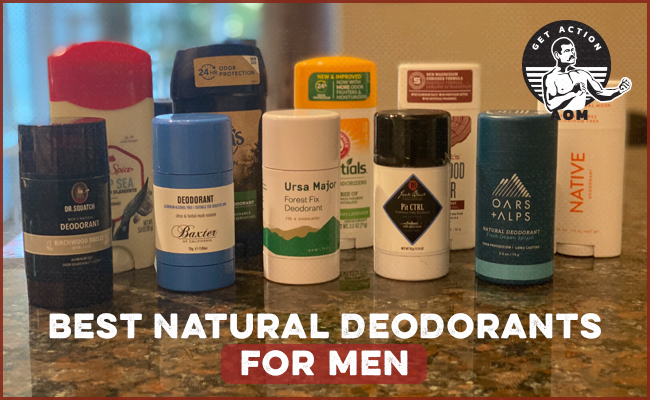
For decades, the deodorant/antiperspirant market was pretty stagnant. Brands introduced new scents or improved formulas that supposedly extended the odor-fighting life of the product. But a lot of folks have pretty much been using the same stick year in and year out.
Lately, there’s been a bit of a disruption in this area of hygiene supplies with the rise in popularity of “natural” deodorants. If you’ve seen ads or coverage of them, perhaps you’ve wondered if you should make the switch, and if so, which brand to buy.
I dive pits-first into answering both questions below.
What Is a “Natural” Deodorant?
There are no legal restrictions on how the term “natural” can be used, so there’s no set definition for what makes a “natural” deodorant, a natural deodorant.
But as marketed by brands and understood by consumers, natural deodorants are mainly defined as those which don’t contain an antiperspirant.
While you likely call that thing on your bathroom counter that you roll on your armpits “deodorant,” what you’ve probably been using is a deodorant and antiperspirant, which are actually two different things.
Deodorant stops your armpits from smelling. Antiperspirant keeps them from sweating (which also keeps them from smelling).
So the term “natural deodorant” is really a misnomer, since a deodorant without an antiperspirant . . . is simply a deodorant, i.e., when people say they’ve switched deodorants to a natural deodorant, what they’re really saying is that they’ve switched from using a deodorant/antiperspirant, to using just a deodorant.
In addition to lacking an antiperspirant, natural deodorants may also tout the fact that they’re free from things like phthalates and parabens too. But this can more marketing gloss, than a truly distinguishing feature; even a standard deodorant/antiperspirant like Old Spice Sweat Defense doesn’t contain phthalates or parabens either.
So, for the purposes of this article, we’re going to define “natural deodorant” as deodorant sans antiperspirant.
re Antiperspirants Bad for Your Health?Many people switch from antiperspirant/deodorant combos to straight deodorants because they’ve heard that antiperspirants can cause health issues like Alzheimer’s, cancer, and skin biome disruption.
Antiperspirants contain aluminum, and aluminum works by blocking sweat pores, thus preventing you from sweating. At the same time, the antiperspirant cuts off the food supply that the bacteria in your armpits use, preventing bacteria from letting off the gas (yes, B.O. is basically bacteria farts) that causes your pits to stink. So aluminum keeps your pits from sweating, and stinking.
The concern around antiperspirants’ functional ingredient centers on two worries: The first is that in applying aluminum to your skin, that aluminum is going to be absorbed by your body. Because some studies have shown that, in high concentrations, aluminum can be a neurotoxin and cause other health issues, it’s natural to wonder if in slathering this element on your armpits every day, you could be absorbing enough aluminum through your skin to cause health problems. The second concern is that in blocking your pores, antiperspirant will block toxins in your body from being released.
But as science writer Sarah Everts noted in our podcast interview about her book The Joy of Sweat, decades of research hasn’t found any evidence of a link between aluminum-based antiperspirants and health issues.
Aluminum-based antiperspirants have repeatedly been shown not to have any connection to diseases like Alzeheimer’s.
What’s more, other studies from the American Cancer Society have shown that there’s no connection between antiperspirants and cancer.
What about antiperspirants disrupting your skin microbiome? According to skin microbiology expert Jack Gilbert, “there isn’t any rigorous studies that have borne this out.”
And the idea that blocking your pores could trap toxins in your body? Outside your armpits, there are millions of other pores from which sweat can escape, and sweat doesn’t actually detox your body anyway; that’s the job of your liver and kidneys.
What all this research suggests is that aluminum-based antiperspirants do not pose a proven threat to your
No comments:
Post a Comment